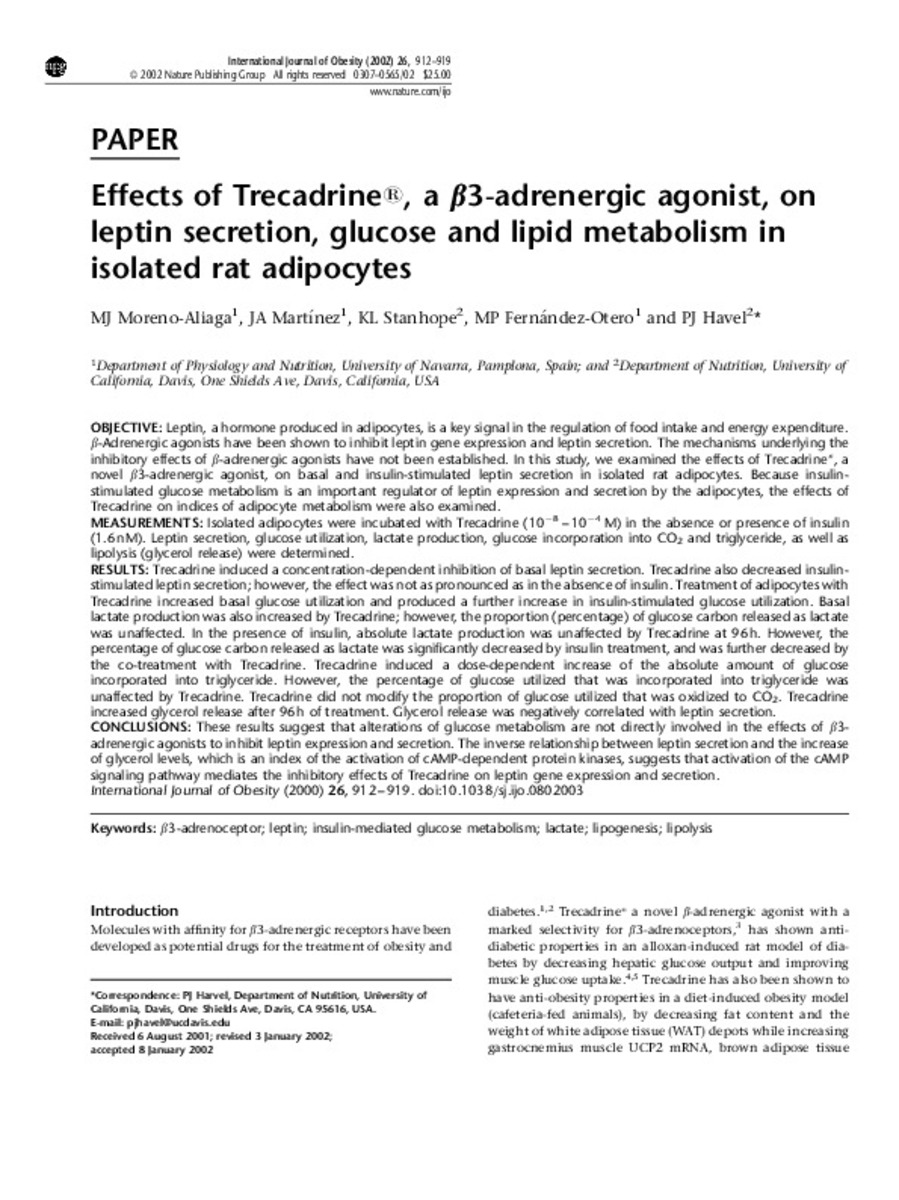Effects of Trecadrine, a beta3-adrenergic agonist, on leptin secretion, glucose and lipid metabolism in isolated rat adipocytes
Palabras clave :
Beta3-adrenoceptor
Leptin
Insulin-mediated glucose metabolism
Lipogenesis
Lactate
Lipolysis
Fecha de publicación :
2002
Editorial :
Nature Publishing Group
Cita:
Moreno-Aliaga MJ, Martinez JA, Stanhope KL, Fernandez-Otero MP, Havel PJ. Effects of Trecadrine, a beta3-adrenergic agonist, on leptin secretion, glucose and lipid metabolism in isolated rat adipocytes. Int J Obes Relat Metab Disord 2002 Jul;26(7):912-919.
Aparece en las colecciones:
Estadísticas e impacto
0 citas en

0 citas en

Los ítems de Dadun están protegidos por copyright, con todos los derechos reservados, a menos que se indique lo contrario.








